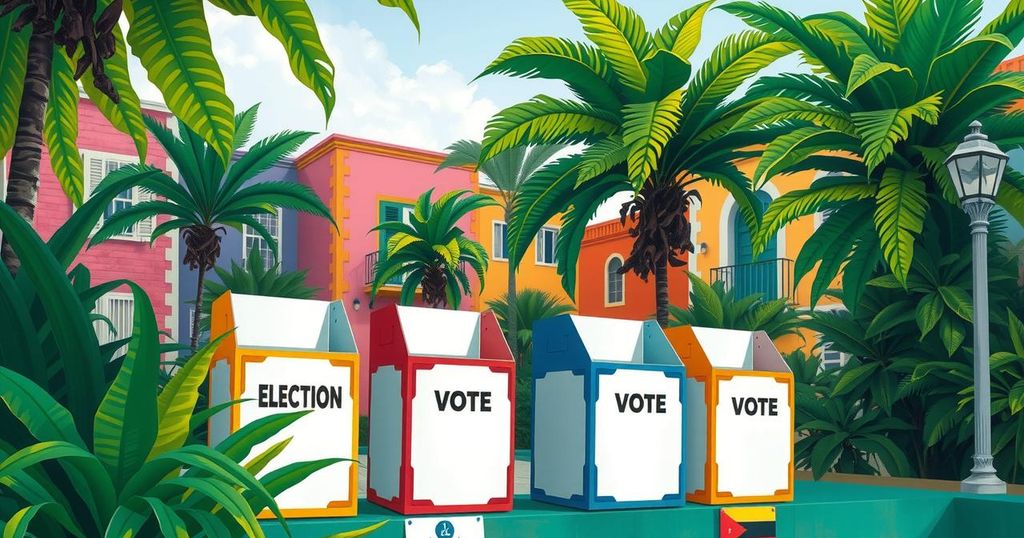Trinidad and Tobago held elections amid increased gang violence and economic troubles. Incumbent PM Stuart Young faces a challenge from Kamla Persad-Bissessar, who promises higher wages. The nation grapples with a high murder rate linked to criminal gangs and has declared a state of emergency. The elections will determine the next prime minister and the composition of parliament.
Trinidad and Tobago held crucial general elections on Monday, with citizens flocking to the polls amid growing concerns about gang violence and a struggling economy. This election is pivotal as it will not only determine the composition of Parliament but also the next prime minister, following a turbulent period in the nation’s political landscape. The incumbent, Prime Minister Stuart Young, was appointed just last March after Keith Rowley stepped down after a decade in the role, aiming to inject new leadership into the government.
Polling suggests Young’s People’s National Movement (PNM) may be trailing the United National Congress (UNC), led by former prime minister Kamla Persad-Bissessar. Persad-Bissessar, 73, has campaigned on promises for higher public sector wages, emphasizing the struggles of ordinary citizens dealing with rising living costs. On election day, she highlighted the plight of mothers balancing grocery bills as food prices continue to soar.
In response, Young accused his rival of making unrealistic promises, specifically criticizing the $2 billion cost of the proposed wage increases. He contends that his administration is focused on a more efficient state sector that prioritizes citizen needs and values their time. Voters are deciding on 41 members of the House of Representatives; a majority will allow one party to form a new government, while a tie may lead to coalition discussions.
This election is overshadowed by a severe security crisis. The nation recorded 623 murders last year, a substantial increase from 577 in 2023, largely attributed to violent criminal gangs operating in the region, including Venezuela’s Tren de Aragua, which the US has labeled a terrorist organization. According to a March report from the US Department of State, Trinidad and Tobago had a murder rate of 37 per 100,000 residents, marking it as one of the world’s most dangerous countries.
The government implemented a state of emergency last December in an effort to combat the escalating violence associated with organized crime. Additionally, the economic situation remains critical, as Trinidad and Tobago, the Caribbean’s second-largest natural gas producer, faces downturns attributed to reduced production levels. Earlier hopes of tapping into the Dragon gas field have been dashed after the US administration revoked licenses amid increased sanctions on Venezuela.
In summary, Trinidadians cast their votes amid serious challenges, including rampant violence and a faltering economy. With former ministers vying for leadership, the election outcome could shift the political landscape significantly. Conflicting promises regarding public wages and safety underline the tense atmosphere leading up to the polls. As results come in, the new government will have monumental tasks ahead, primarily restoring order and addressing economic woes in this Caribbean nation.
Original Source: www.france24.com






